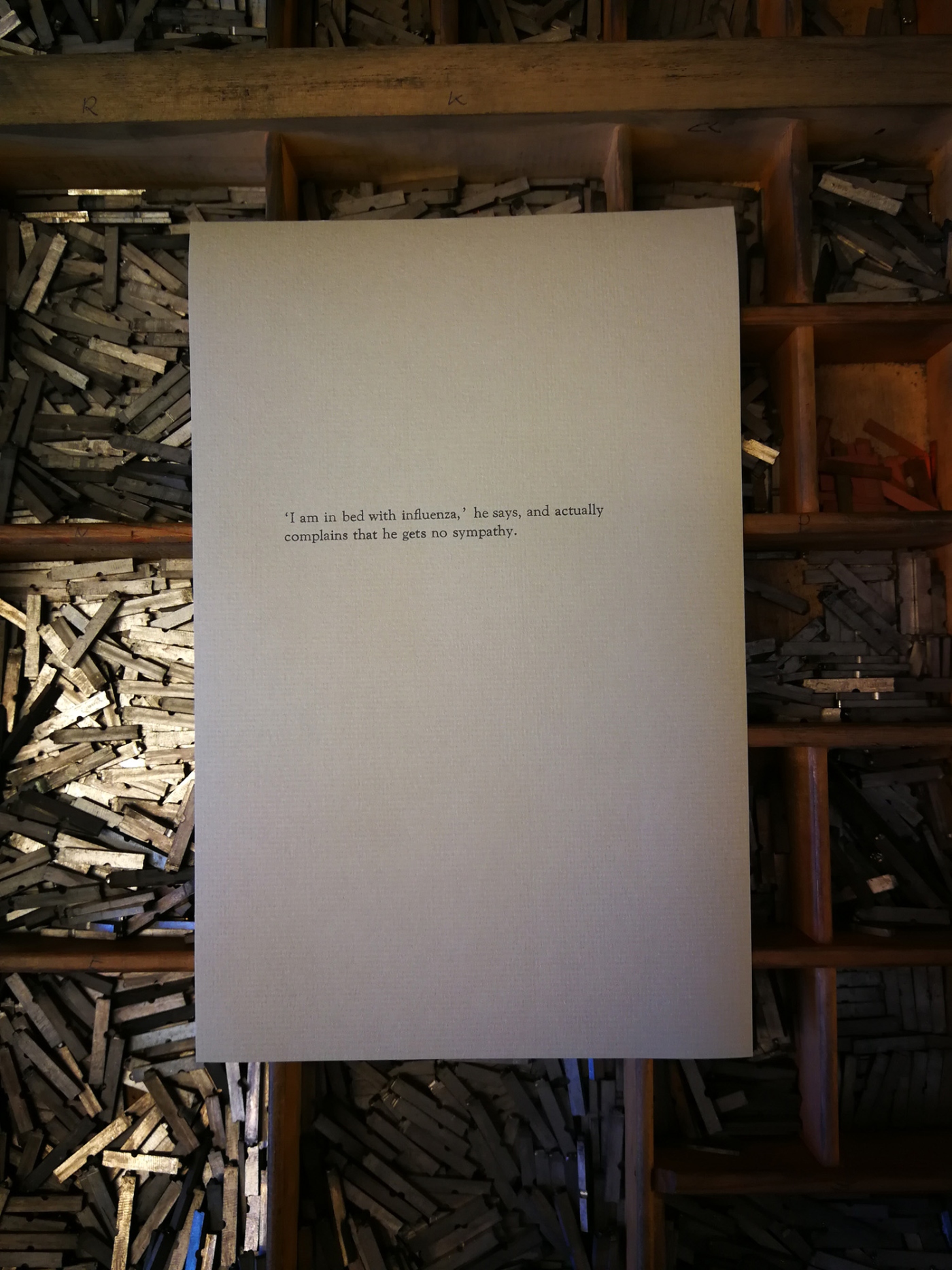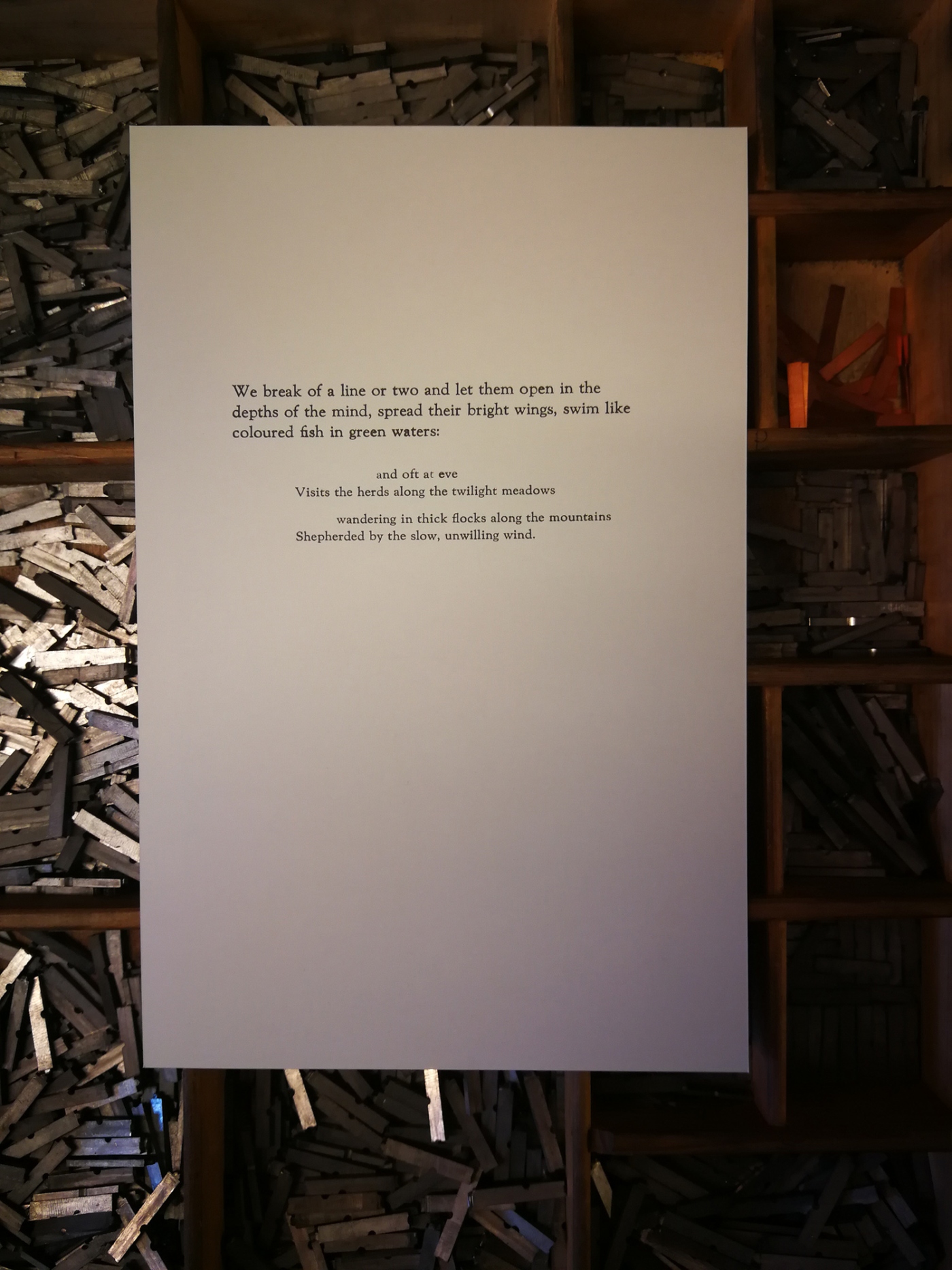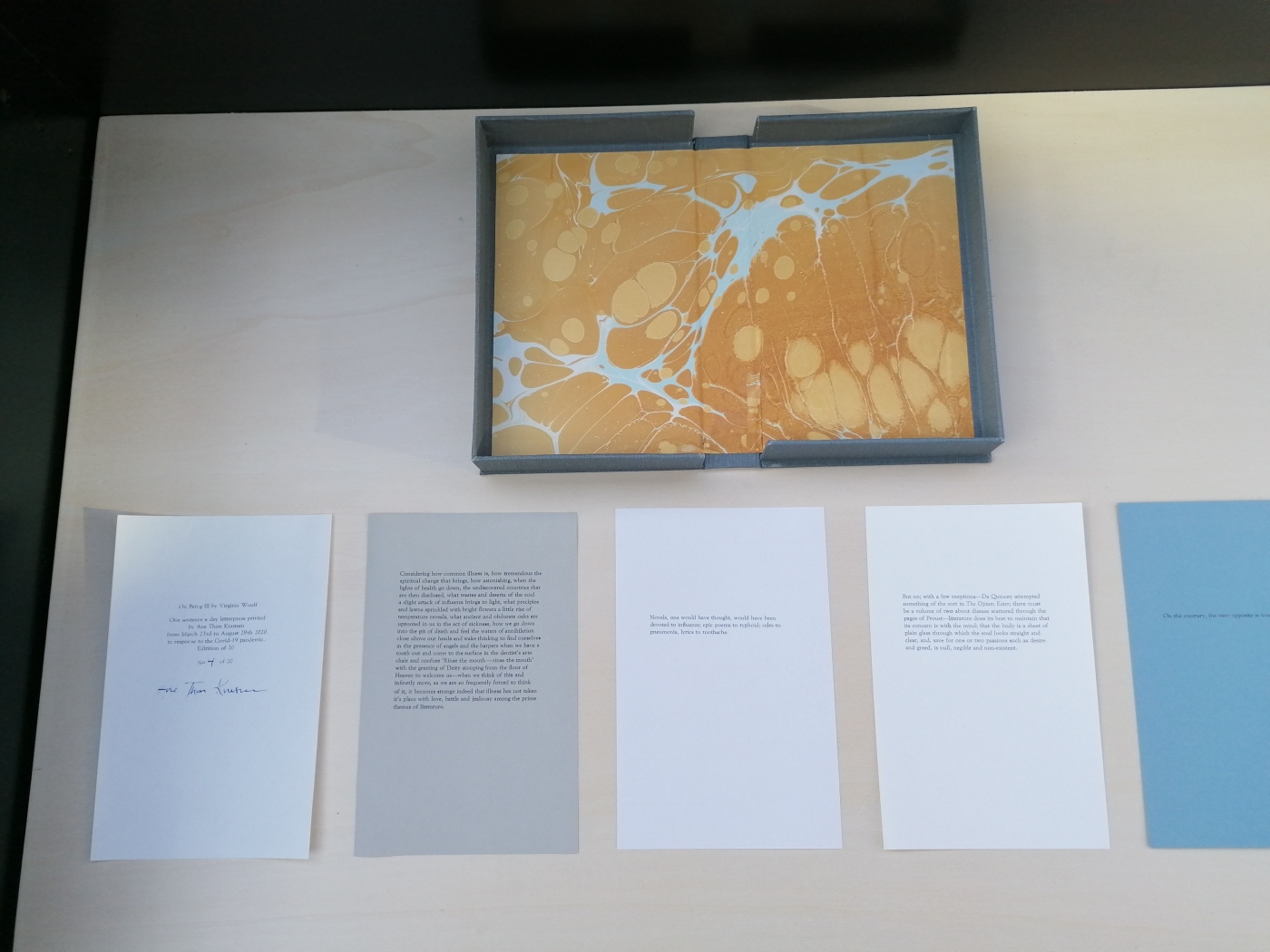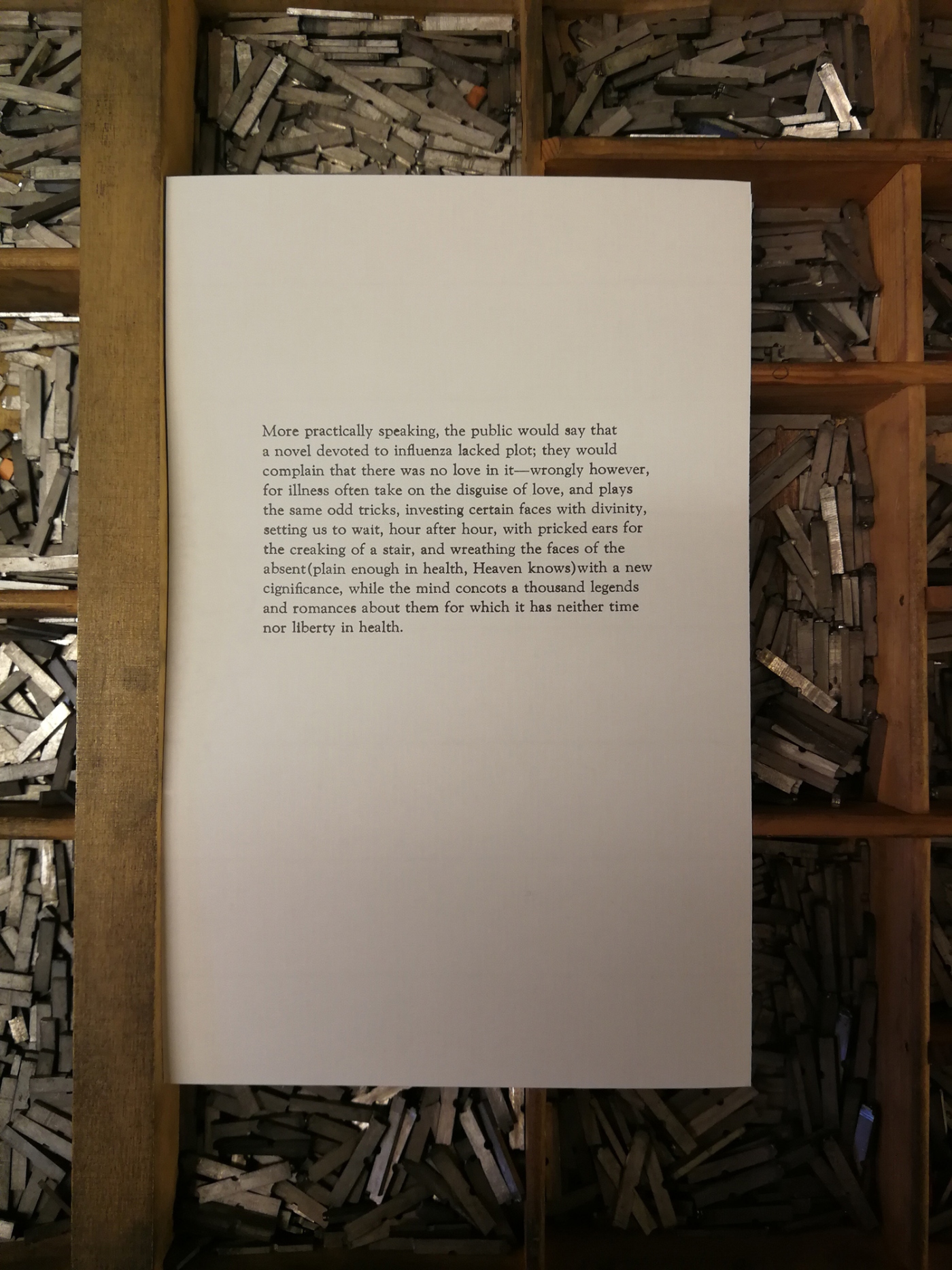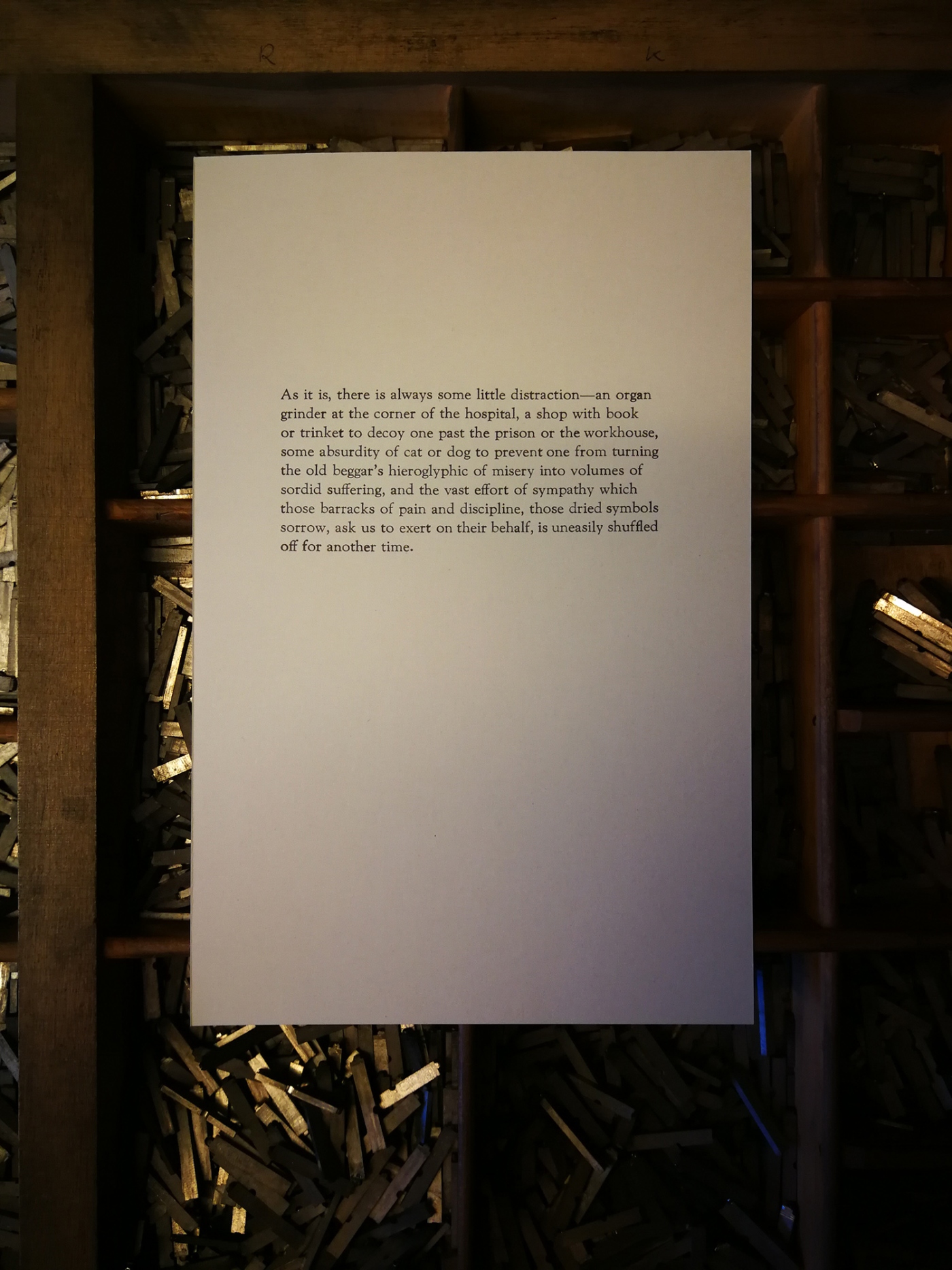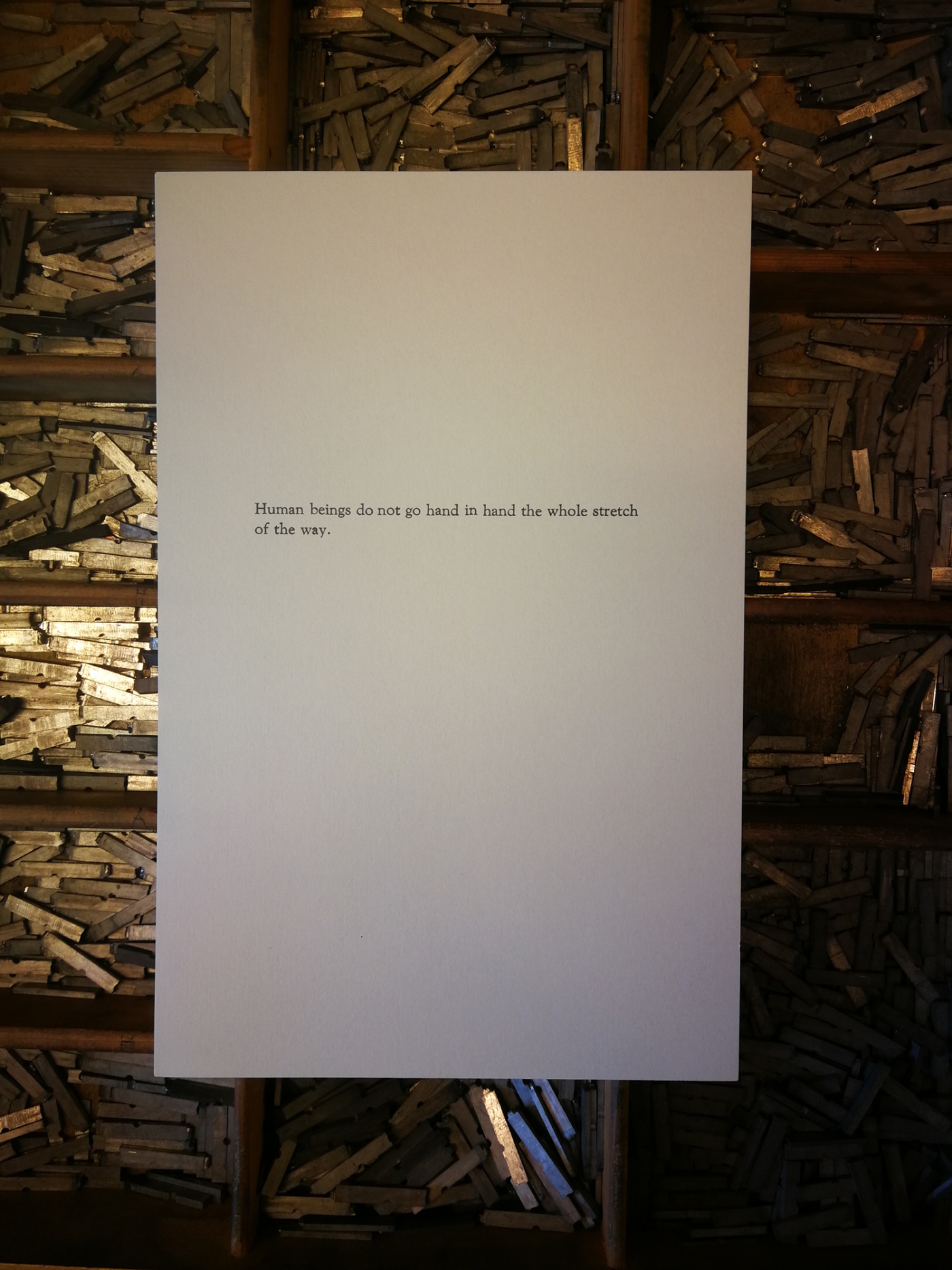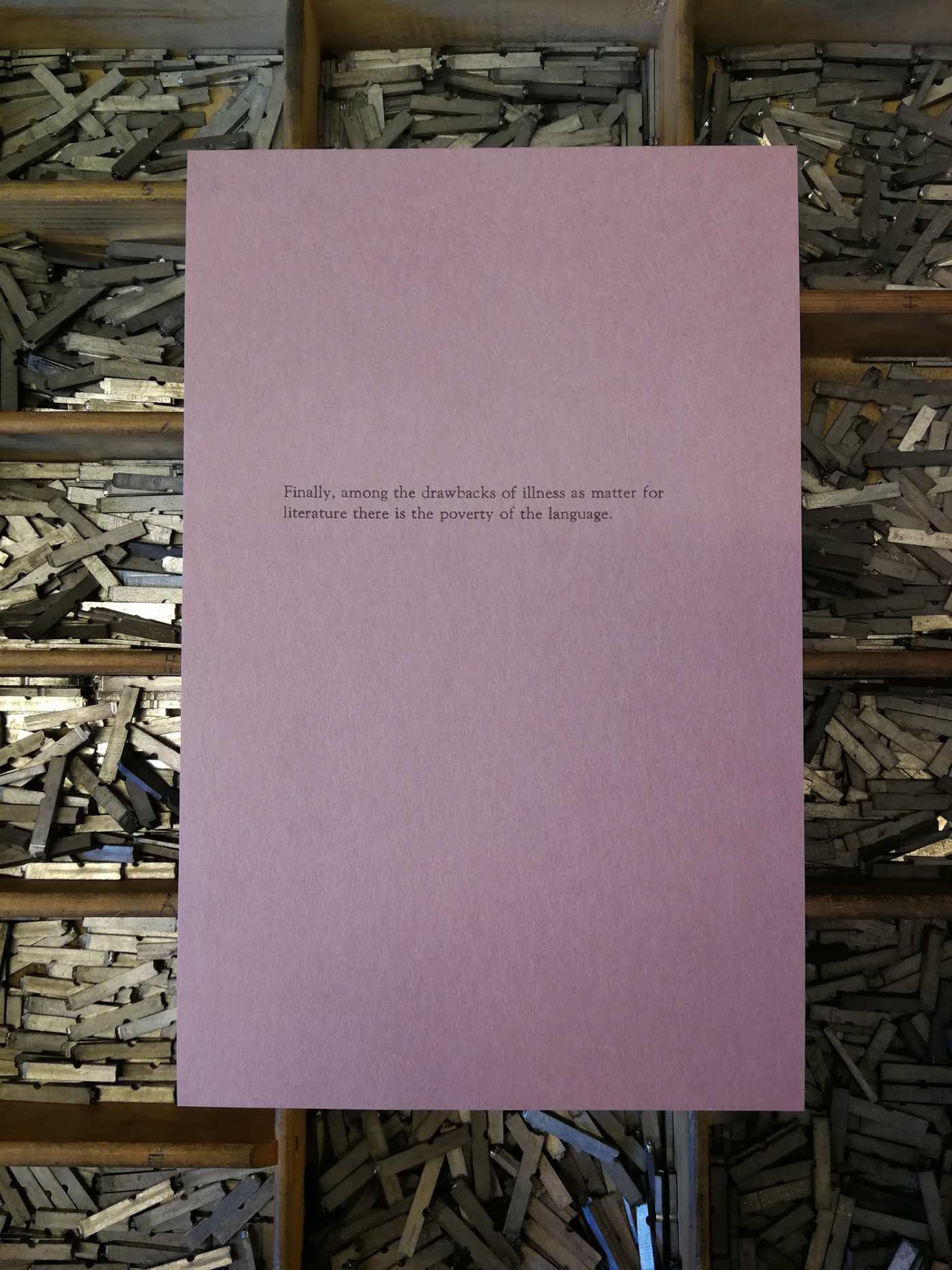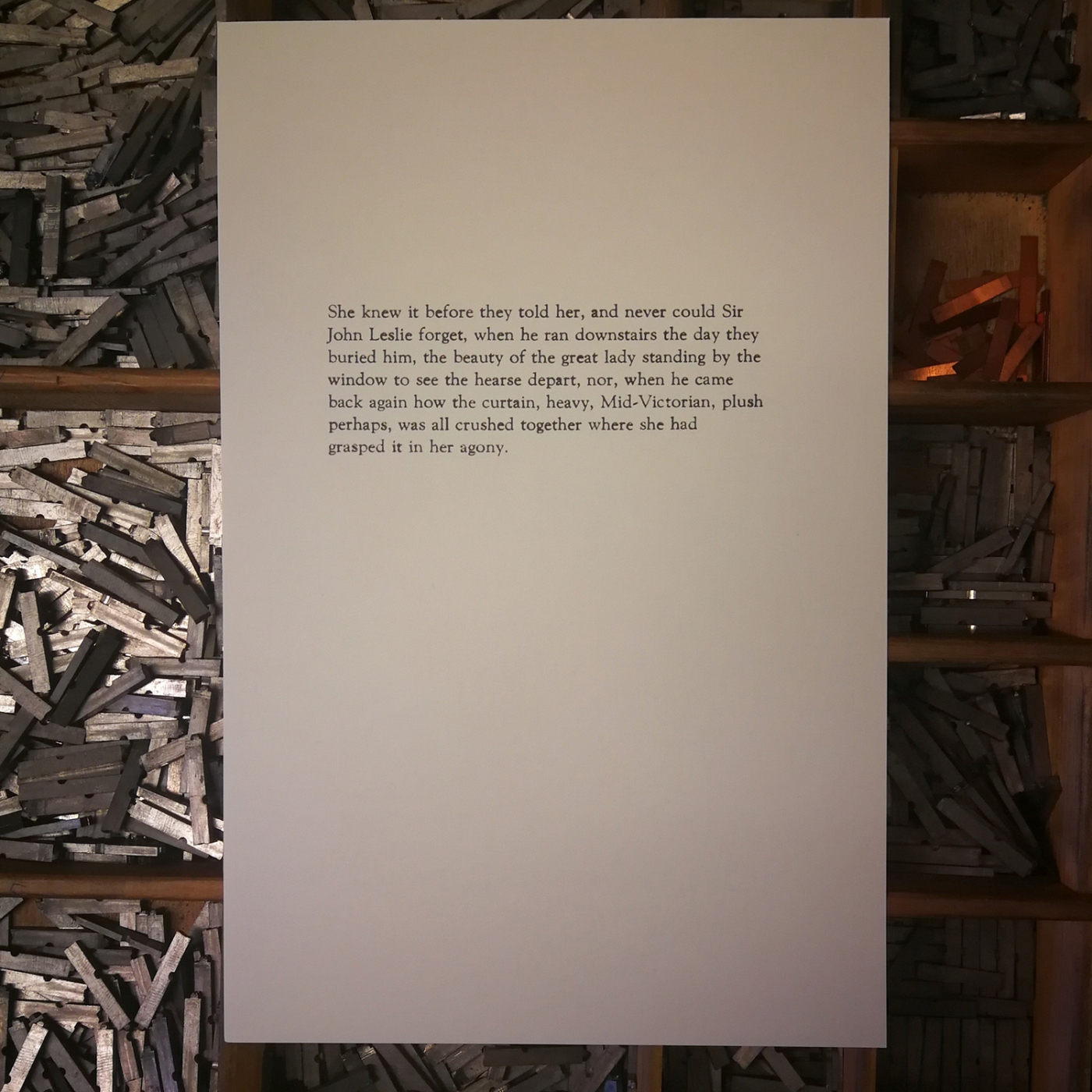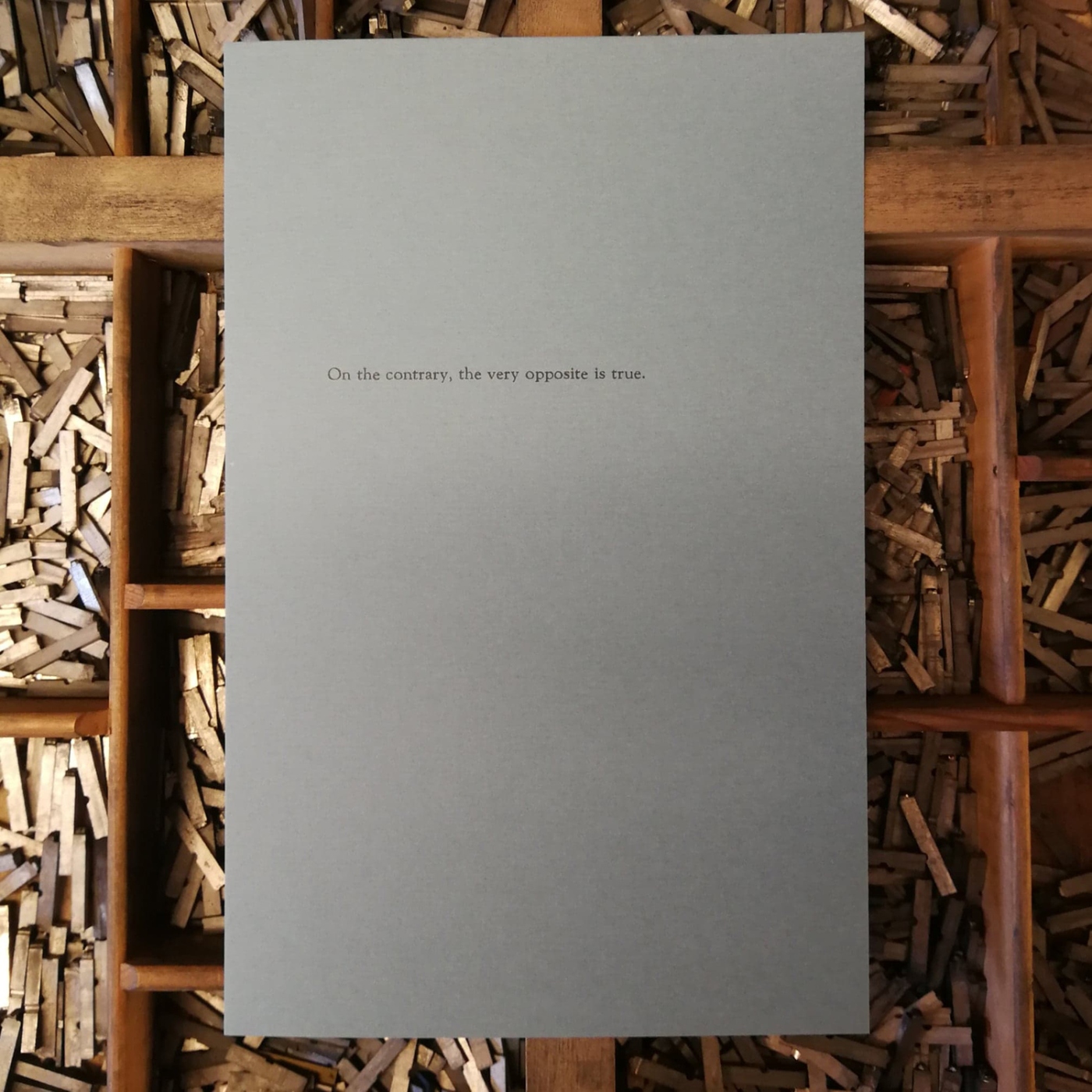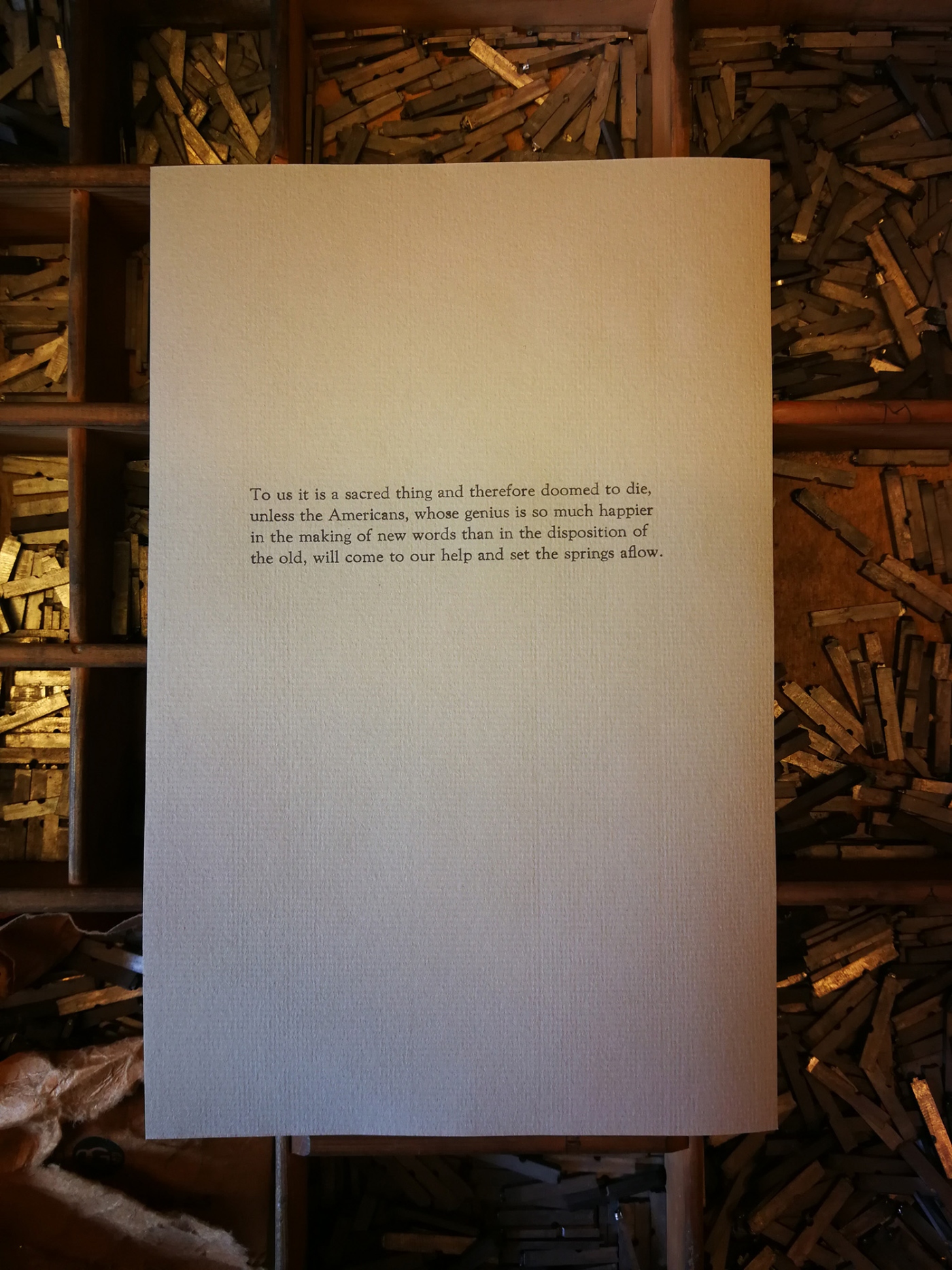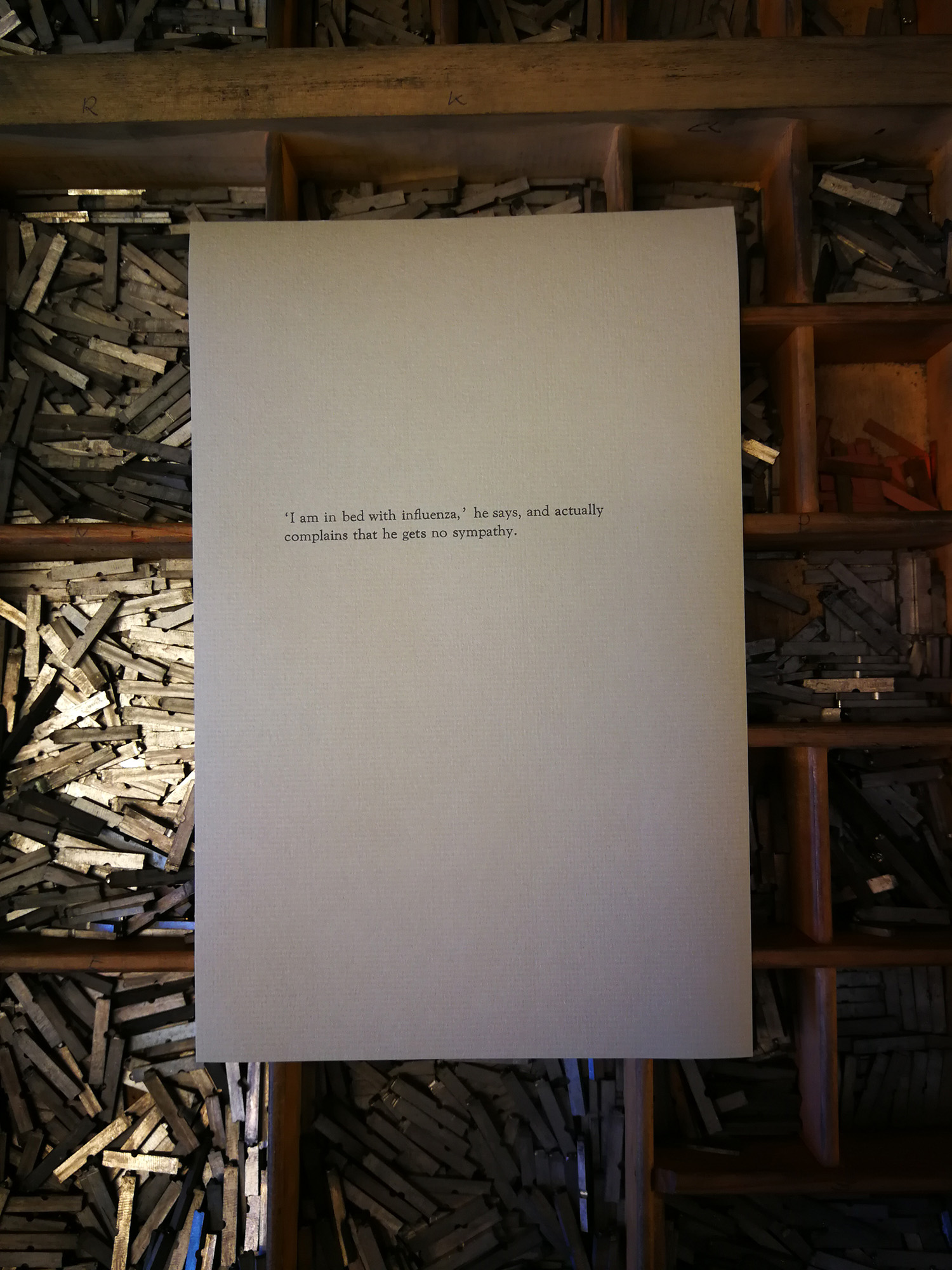ON BEING ILL
- an artist book responding to the Covid-19 pandemics
An adaptation of Virginia Woolf´s essay On Being Ill, letterpress printed one sentence a day from March 23rd to August 29th, as a diary in response to the Covid-19 pandemic.
Every day, for five months I went down to the letterpress studio in the basement of my home and typeset and printed one sentence from On Being Ill by Virginia Woolf. It presented a very slow reading of the short story.
A photo was shared daily on social media, often – but not always – followed by a short reflection, sometimes with references to research on pandemics as a topic in art and literature. This work was created out of frustration and worries about the future. The need to make something out of the situation beyond my control became strong. On Being Ill became a very relevant text to work with right now.
Virginia Woolf had much experience with illness, both through the loss of close family and by having been bedridden with both physical and mental illness throughout her life. In the short story, she reflects on why pandemics and diseases are not subjects of literature in line with war and love. (Questions we could not ask ourselves today, but possibly she put the topic on the agenda.) What has struck me, through working on this project, is that modernism's experiments with challenging the linear narrative and exploring an occasionally dreamy language, make sense if it is seen in the light of illness. The Spanish flu has in many ways ended up in the shadow of World War I, despite the fact that 100 million people died from it.
In the early weeks of the corona crisis, I – in my nativity – thought that the state of emergency might be over from one day to the next, but now I realize that the timeline and normal state will not be as clean cut as I wanted, with a kind of liberation day that marks the end. Being in the middle of a pandemic as we are now, with environmental threats and unruly leaders, it sometimes feels as if the reality we knew is disintegrating. Uncertainty about where we are going, what the narrative is, and what the future looks like, gives us a different ability to relate to modernist experiments with texts that (to me at least) are utterly confusing, chaotic and surprising without clear narratives and directions; just like life at the moment.
I am still worried, and I am tired, but this too shall pass.
